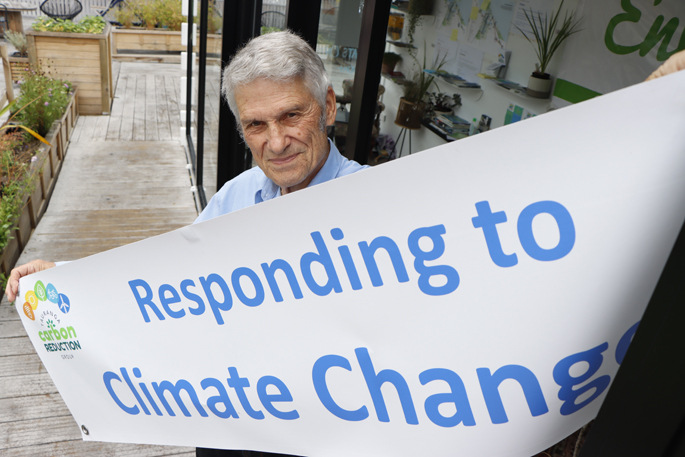It's a snapshot of Tauranga's attitudes to climate change. Completely unscientific, but it suggests people are gloomy.
In the weeks before the lockdown, authors of the survey, the Carbon Reduction Group, stopped 55 people and asked them to characterise their view of climate change.
They were given eight options as a measure of their concern or optimism.
The first options was ‘Scary?', then it went down the level of concern: A lost cause, THE critical emergency, one of many critical issues, a secondary issue, a put-on, not of interest or hopeful?
And the vast majority of respondents, 88 per cent, opted for option three – ‘THE critical emergency'.
A few bracketed options three and four – if not THE critical emergency, then one of them. So respondents to the survey were deeply pessimistic.
And only one climate denier – 'Absolute b…s…” was the sneering response. It's unclear whether they thought the notion of climate change was 'b…s…”, or the survey itself.
'I was very surprised,” says Gray Southon of the Carbon Reduction Group which authored the survey.
'I thought most people would go for option four believing there are a lot of other important things like biodiversity, and even Covid-19. I thought that would be top of their minds but it doesn't seem to have affected things.”
What they also found surprising was the number of people who were prepared to stop and engage on the issue, to put their lunch, their dumplings and vegan burgers aside for ten minutes to record their thoughts on the state of the planet. It showed what was important to them.
The Carbon Reduction Group is a think tank that examines climate change and monitors policy.
'We work very closely with Envirohub – the umbrella organisation for conservation, green hand and sustainable living groups through the Bay of Plenty.”
The survey was done at the Envirohub booth at 'Our Place” in the Tauranga CBD – the container enclave in Willow Street.
'And what emerged from the climate change question, I believe, was quite significant because the conclusion came out so sharply.”
What also surprised the group was the depth and diversity of what the respondents thought should be done about 'THE critical emergency”. They scrawled their thoughts on post notes.
'Drive hybrid, move to a plant based diet and grow 60 per cent of food at home.” A lot of people were pushing for a move away from fossil fuels.
'Look at buying an electric car. Do not use products planted as a result of deforestation.”
There was a lot of mention of the need for lifestyle changes and the need for government and council action and leadership.
'Act quickly …change our attitudes. Refuse plastic packaging, throw away as little as possible.
'My home is modeling best practices for an urban house and inviting people to be part of the community, intergenerational living and composting.”
'Already avoid using the car. Lots of cycling and we have solar panels.”
There were many responses on hybrid cars and cycling.
'Looking into passive off-the-grid living. We practice recycling and minimising waste.”
”Bike to work, use public transport more.”
'Stop buying and you stop unnecessary production.”
Gray Southon says no statistical conclusions could be drawn from the survey a.
'It was simply to get people thinking, get a public engagement on a big issue, and get an idea of how they were thinking.”
But the takeaway message was 'we must make change now – we must act now.”

